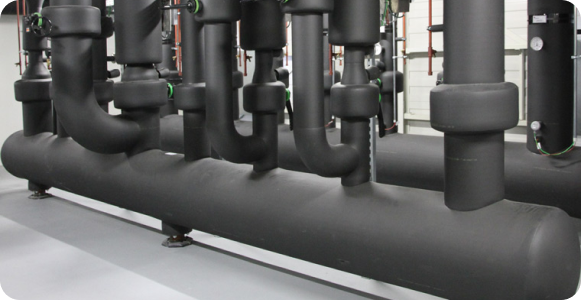- Home
- About
- ProductsMenu Close
- GEO TEXTILE FABRIC
- WMP 50
- WMP 10
- REFLECTIVE ALUMINIUM FOIL
- BLACKGLASS TISSUE, BGT
- FIBERGLASS TISSUE, FGT
- PERFORATED SHEET
- DOUBLE SIDE FSK
- HEXAGONAL WIREMESH-GI
- WHITE GLASS CLOTH
- ALUMINUM BUBBLE FOIL
- ALUMINIUM FOIL GLASS LAMINATION
- ALUMINIUM FOIL FACING
- DOUBLE SIDE FSK
- BLACK GLASS CLOTH, BGC
- ALU GLASS CLOTH
- GEO TEXTILE FABRIC
- WMP 50
- WMP 10
- REFLECTIVE ALUMINIUM FOIL
- BLACKGLASS TISSUE, BGT
- FIBERGLASS TISSUE, FGT
- PERFORATED SHEET
- DOUBLE SIDE FSK
- HEXAGONAL WIREMESH-GI
- WHITE GLASS CLOTH
- ALUMINUM BUBBLE FOIL
- ALUMINIUM FOIL GLASS LAMINATION
- ALUMINIUM FOIL FACING
- DOUBLE SIDE FSK
- BLACK GLASS CLOTH, BGC
- ALU GLASS CLOTH
Menu CloseMenu CloseMenu Close - Applications
- Resources
- Case Studies
- Careers
- Contact
- Home
- About
- ProductsMenu Close
- GEO TEXTILE FABRIC
- WMP 50
- WMP 10
- REFLECTIVE ALUMINIUM FOIL
- BLACKGLASS TISSUE, BGT
- FIBERGLASS TISSUE, FGT
- PERFORATED SHEET
- DOUBLE SIDE FSK
- HEXAGONAL WIREMESH-GI
- WHITE GLASS CLOTH
- ALUMINUM BUBBLE FOIL
- ALUMINIUM FOIL GLASS LAMINATION
- ALUMINIUM FOIL FACING
- DOUBLE SIDE FSK
- BLACK GLASS CLOTH, BGC
- ALU GLASS CLOTH
- GEO TEXTILE FABRIC
- WMP 50
- WMP 10
- REFLECTIVE ALUMINIUM FOIL
- BLACKGLASS TISSUE, BGT
- FIBERGLASS TISSUE, FGT
- PERFORATED SHEET
- DOUBLE SIDE FSK
- HEXAGONAL WIREMESH-GI
- WHITE GLASS CLOTH
- ALUMINUM BUBBLE FOIL
- ALUMINIUM FOIL GLASS LAMINATION
- ALUMINIUM FOIL FACING
- DOUBLE SIDE FSK
- BLACK GLASS CLOTH, BGC
- ALU GLASS CLOTH
Menu CloseMenu CloseMenu Close - Applications
- Resources
- Case Studies
- Careers
- Contact
Cold Storage Insulation - Medicine Storage Solutions
Enhancing Thermal and Acoustic Insulation in Pharmaceutical Facilities with Resin-Bonded Glass Wool

Problem
Pharmaceutical products, particularly vaccines, biologics, and other temperature-sensitive compounds, require precise temperature control throughout production, storage, and transportation. Without effective insulation, these products risk degradation, reducing efficacy and shelf life. Furthermore, inadequate insulation leads to energy inefficiencies, resulting in higher operational costs and increased environmental impact.
Solution
Resin-Bonded Glass Wool Insulation and Nitrile Rubber
Resin-bonded glass wool is an ideal insulation solution for the pharmaceutical industry, offering excellent thermal performance, fire resistance, and acoustic insulation properties. The material is lightweight, easy to install, and environmentally friendly, making it a valuable asset in pharmaceutical applications.
Key Benefits of Resin-Bonded Glass Wool in Pharmaceutical Insulation:
Temperature Control:
Resin-bonded glass wool maintains consistent internal temperatures, preventing fluctuations that could compromise the stability of temperature-sensitive products. This ensures that products retain their efficacy throughout the manufacturing and storage process.
Energy Efficiency
Insulation reduces the need for constant climate control, leading to significant energy savings. This is especially crucial in temperature-controlled environments such as clean rooms and cold storage facilities, where heating or cooling equipment must operate efficiently.
Fire Safety Compliance
Pharmaceutical facilities must adhere to stringent fire safety regulations. Resin-bonded glass wool is non-combustible and has excellent fire resistance, enhancing safety and compliance with industry standards.
Moisture Resistance
Controlling humidity levels is essential to prevent microbial contamination and product degradation. Resin-bonded glass wool insulation provides moisture resistance, ensuring that pharmaceutical facilities maintain the necessary dry environment.
Sound Insulation
Pharmaceutical facilities often require a quiet environment to avoid disrupting sensitive processes. Resin-bonded glass wool offers sound-dampening properties that help reduce noise, creating an optimal workspace.
Case Example
Outcome
The adoption of nitrile rubber insulation resulted in several significant improvements:
Energy Savings:
Energy consumption was reduced by 30%, significantly lowering operating costs.
Product Integrity
Temperature stability improved, reducing product waste by 20%.
Regulatory Compliance
Enhanced fire resistance and moisture control improved overall compliance with industry standards.
Specifications
Density (kg/m³) | Thickness (mm) | Facings | Temperature Range (°C) |
16-24 | 15, 25, 50, 75, 100, 130 | Plain, Aluminum Foil, Kraft | Up to 250 |
32-48 | 15, 25, 50, 75, 100, 130 | Plain, Aluminum Foil | Up to 300 |
48-64 | 15, 25, 50, 75, 100, 130 | Aluminum Foil, Glass Cloth | Up to 400 |
64-80 | 15, 25, 50, 75, 100, 130 | Aluminum Foil, Fiber Mesh | Up to 500 |
80-100 | 15, 25, 50, 75, 100, 130 | Aluminum Foil, Wire Mesh | Up to 550 |
Facings
- FSK (Foil-Scrim-Kraft)
- Double-Sided FSK
- Aluglass Cloth
- Fsv Foil Mesh
- Heat Sealable Foil Fiberglass Cloth
- Fibreglass Tissue
- Black Glass Tissue
- WMP 10
- WMP 50
- WMP VR PLUS
- R3035HD
Industries of Application
- Construction: For thermal and acoustic insulation in residential and commercial buildings.
- HVAC: Duct insulation for thermal efficiency and soundproofing.
- Automotive: Soundproofing and thermal insulation in vehicles.
- Petrochemical: Insulation in high-temperature applications.
- Power Plants: Insulation for turbines, boilers, and piping.
- Marine: Thermal and acoustic insulation in ships.
- Manufacturing
